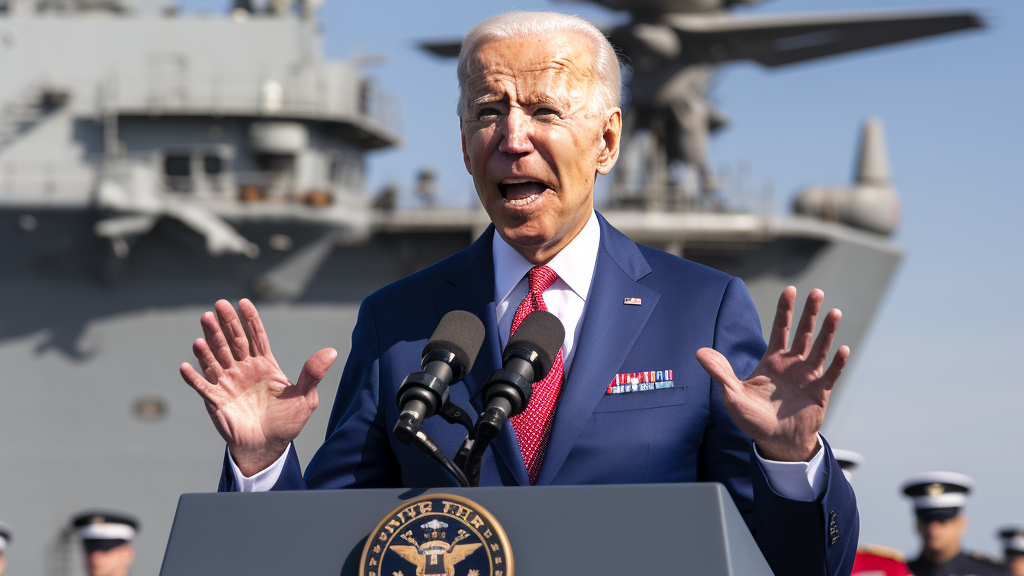In a daring blend of diplomacy and daytime drama, the United States has reportedly asked Iran to entertain a ‘polite’ missile exchange with Israel, in an effort to manage regional tensions with the decorum of a tea party. This extraordinary request comes after a convoluted week in which an Israeli airstrike demolished an Iranian consulate, followed by Iran lining up hundreds of missiles, presumably for a tit-for-tat that no party actually wants to escalate into a full-blown war.
President Biden, in a move that blends the subtlety of a sledgehammer with the precision of a diplomat, has been quoted as merely saying “Don’t” when asked about the potential for Iranian retaliation. This minimalist approach to conflict resolution has left many wondering if the next step involves asking Iran and Israel to ‘please take turns’ and to ‘play nice.’
As tensions mount, the U.S. has scrambled to put its diplomatic and military assets into positions that could either be seen as protective or provocatively paternalistic, depending on which side of the missile one is standing. The U.S. administration’s efforts to temper responses have stretched into bizarre new realms, with diplomatic sources revealing off-record that the U.S. suggested Israel could ‘hit back but gently,’ perhaps using older, less effective missiles that couldn’t possibly be construed as too aggressive.
“The idea is to keep the retaliation civil,” explained a senior U.S. official, who requested anonymity due to the absurdity of the statement. “We’re thinking something symbolic, maybe just a light dusting of non-explosive missiles during off-peak hours, followed by a joint press release expressing mild regret and hopes for a better tomorrow.”
Iran’s response to the proposal was reportedly a mix of confusion and amusement. Iranian officials have not commented publicly but are said to be preparing a PowerPoint presentation titled ‘How Not to Be Patronized While Being Bombed,’ aimed at clarifying their stance on sovereignty and missile diplomacy.
The Israeli reaction has been similarly skeptical, with one senior defense official asking if the U.S. was now sponsoring a ‘Missile Exchange Program’ where countries could trade ordnance like students in a foreign exchange, learning about each other’s cultures one controlled explosion at a time.
In the midst of this geopolitical juggling act, the global community watches with bated breath and a touch of bewildered amusement. Satirists and late-night comedians have found a gold mine in the situation, with viral skits featuring diplomats awkwardly passing bombs across a negotiating table while apologizing for the inconvenience.
As the world awaits the next move in this high-stakes game of international hot potato, the overriding hope remains that all parties can keep their missile launches polite, their retaliations restrained, and their press statements full of regrettable yet civil language, ideally without actually resolving any of the underlying issues that started the fireworks in the first place.

